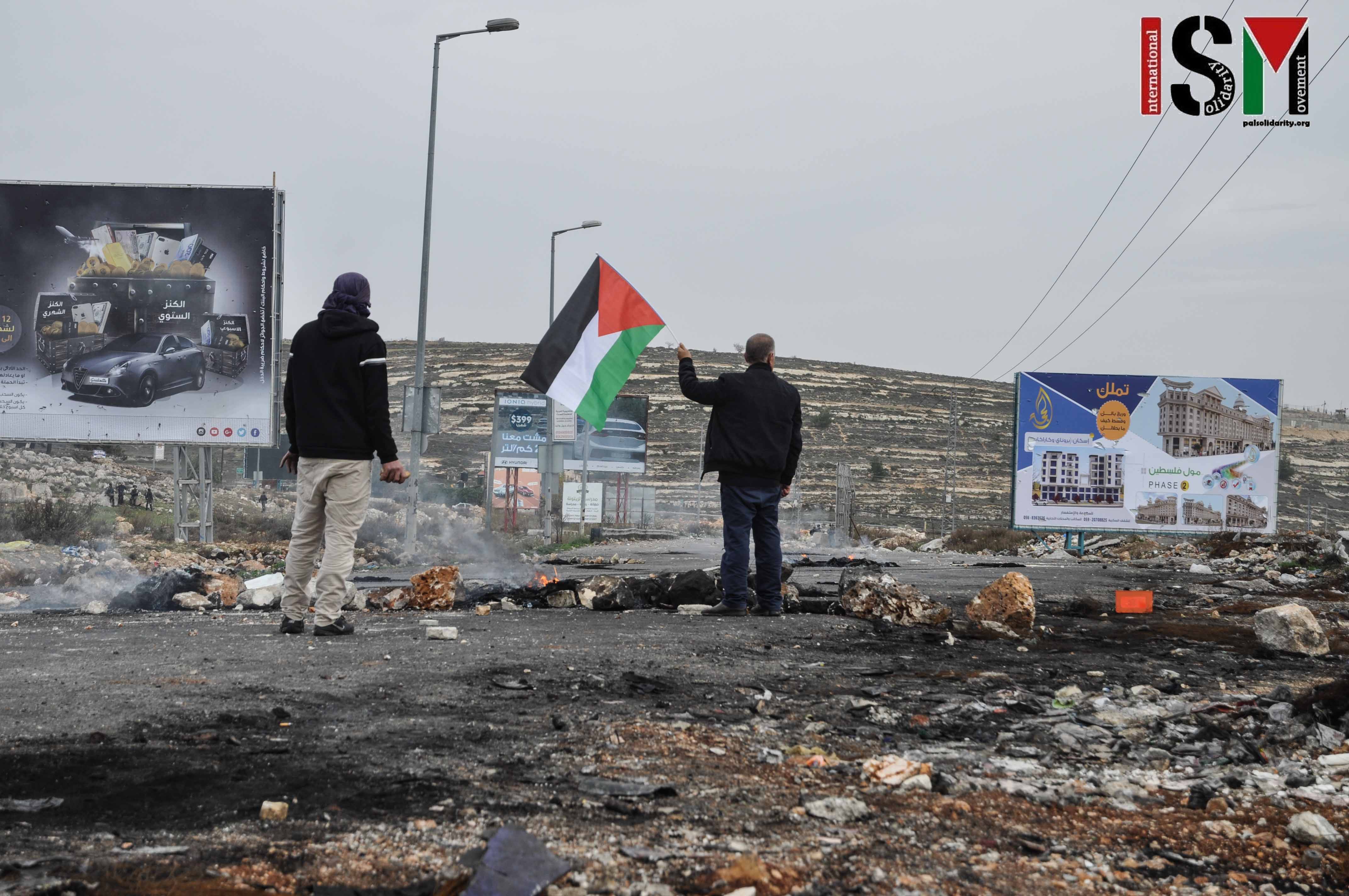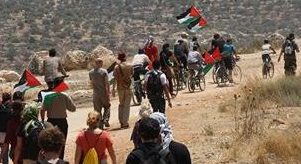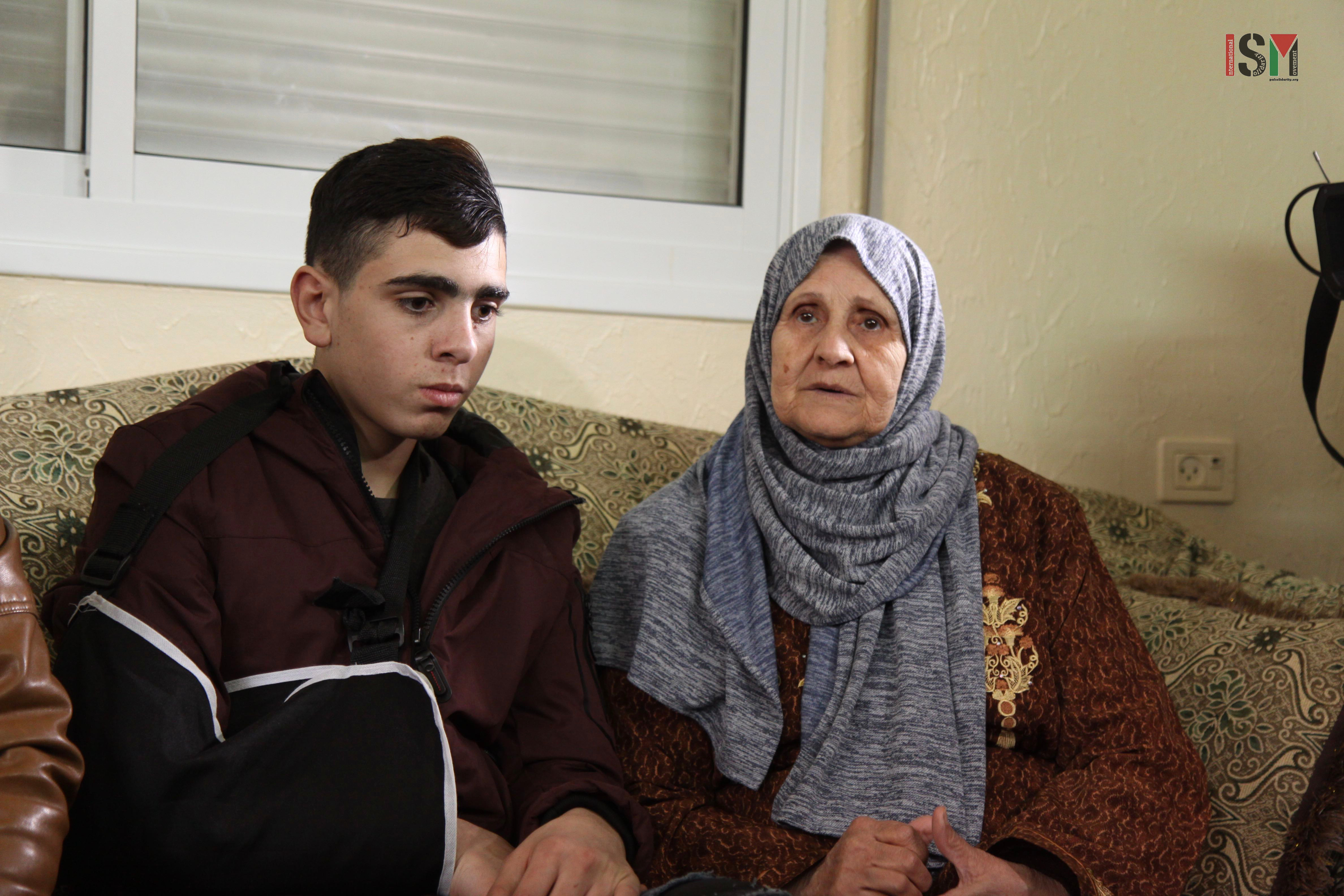-
Friday Demonstration at Beit’El
Some impressions of last friday demonstration (Dec 29) at Beit’El where an illegal settlement has been set up: The settlement of Beit’El has been built illegally in the year 1977. Growing in its population it counts more than 5600 settlers. By taking their land Palestinians do not have full access to water supplies, farming land […]
-
ISM Training in the UK
Any one wishing to join the ISM can do a recommended day of training in Manchester, details below: ISM Training in the UK DATE: SATURDAY 27 January 2018 TIME 1030- 17 30 Please confirm your place and loction by mailing: training.ismlondon@riseup.net
-
Fawzi Al Junaidi Released
28th December 2017 | International Solidarity Movement, al-Khalil team | al-Khalil, Hebron, occupied Palestine International Solidarity Movement visited the family home of Fawzi Al Junaidi who was released after his family paid a 10,000 shekel bail on Wednesday Fawzi returned back to his family home after a checkup at hospital. The iconic photo of a […]
Action Alert An Nabi Saleh Apartheid Wall Arrests BDS Bethlehem Bil'in Cast Lead Demonstration Denial of Entry Ethnic Cleansing Farmers Gaza Global Actions Hebron House Demolition International law Israeli Army Jerusalem Live Ammunition Nablus Ni'lin Prisoner Ramallah Rubber-coated steel bullets Settlement Settlers Settler violence Tear-Gas Canister Video



